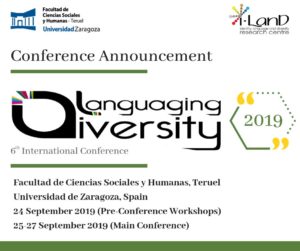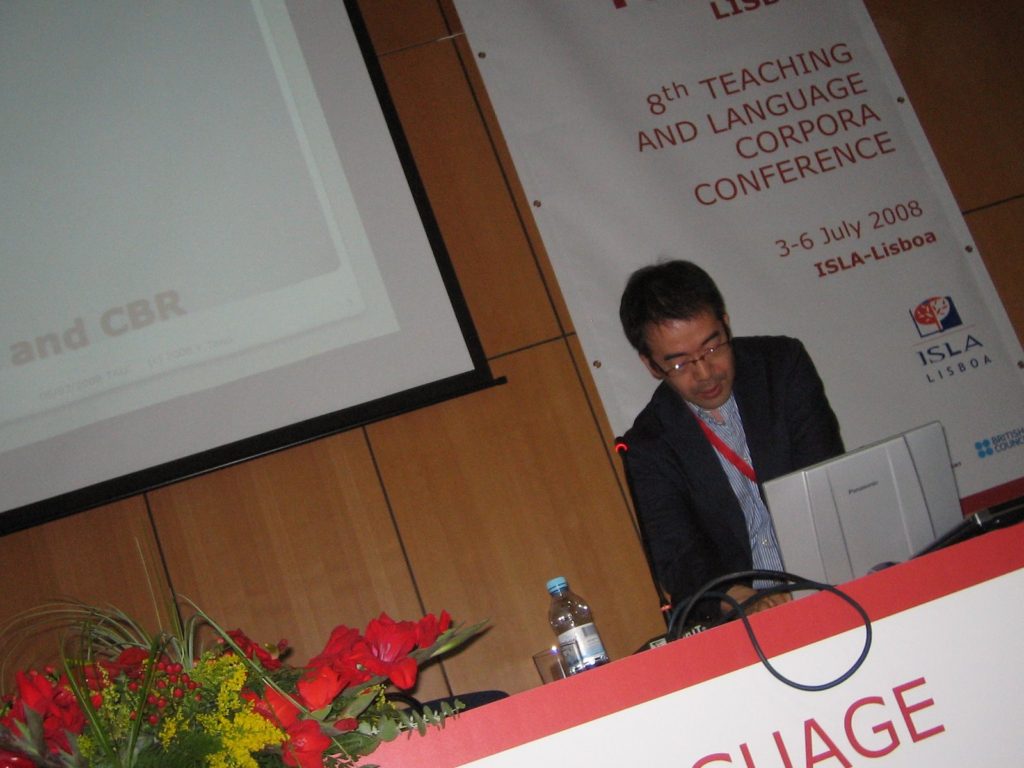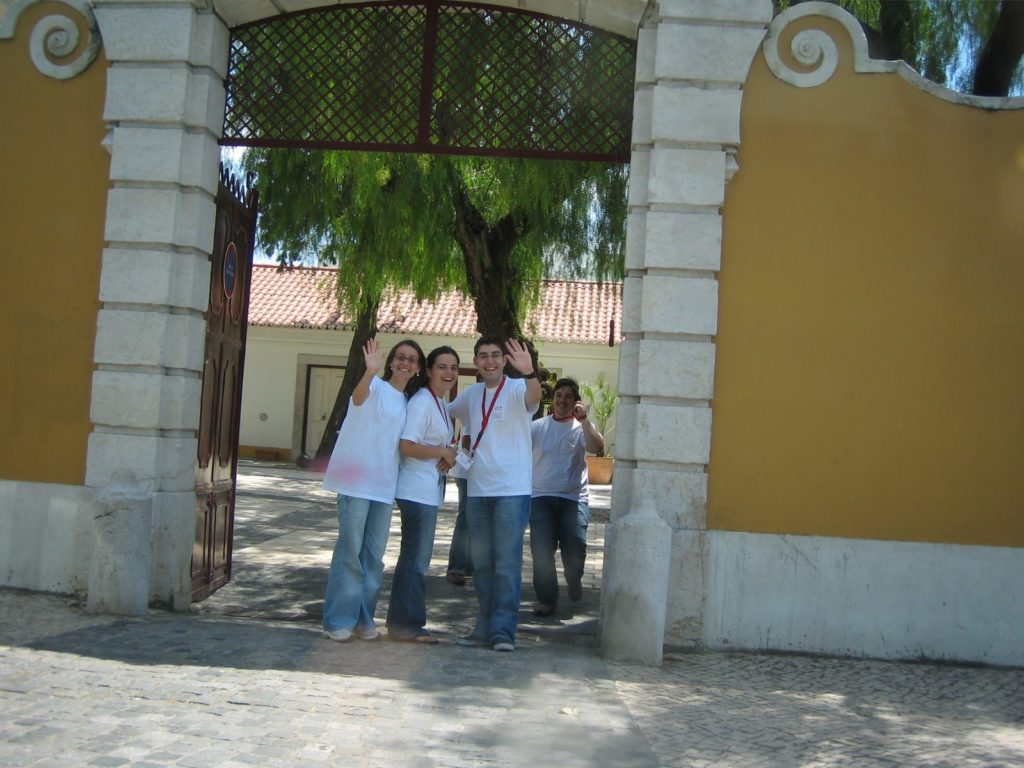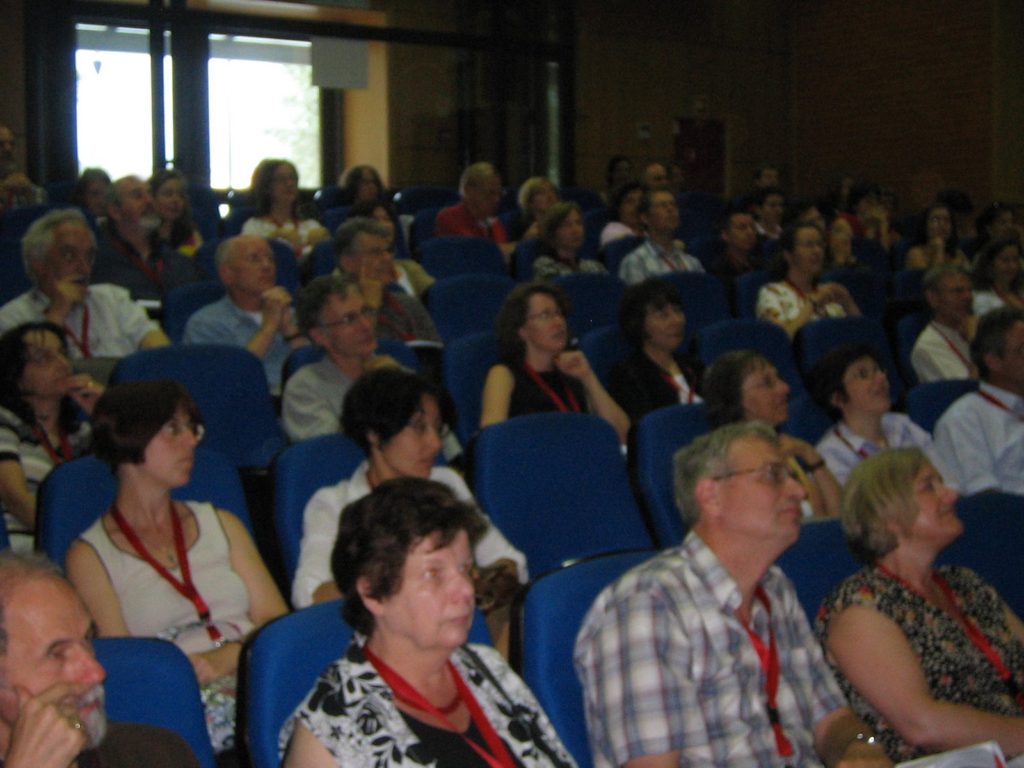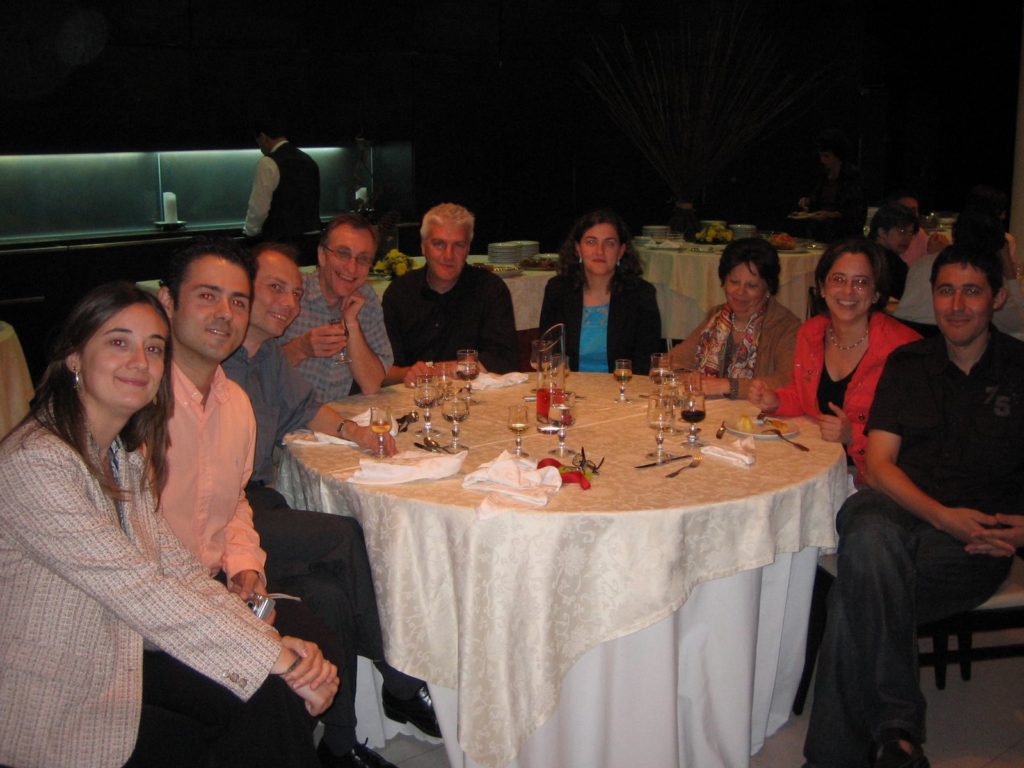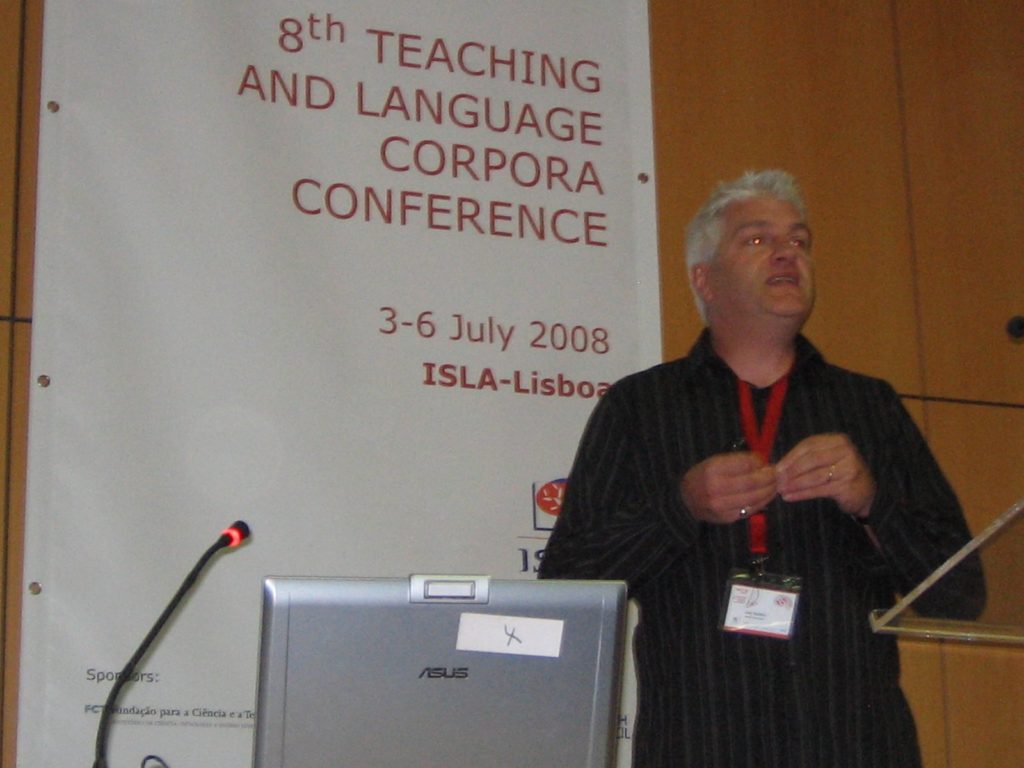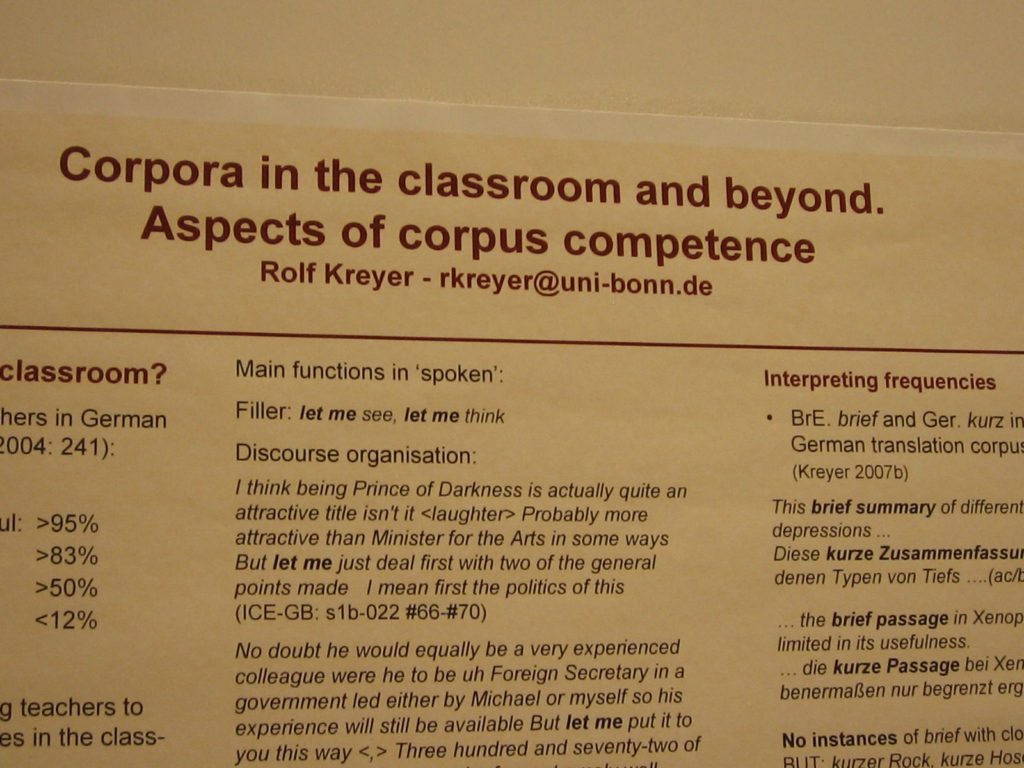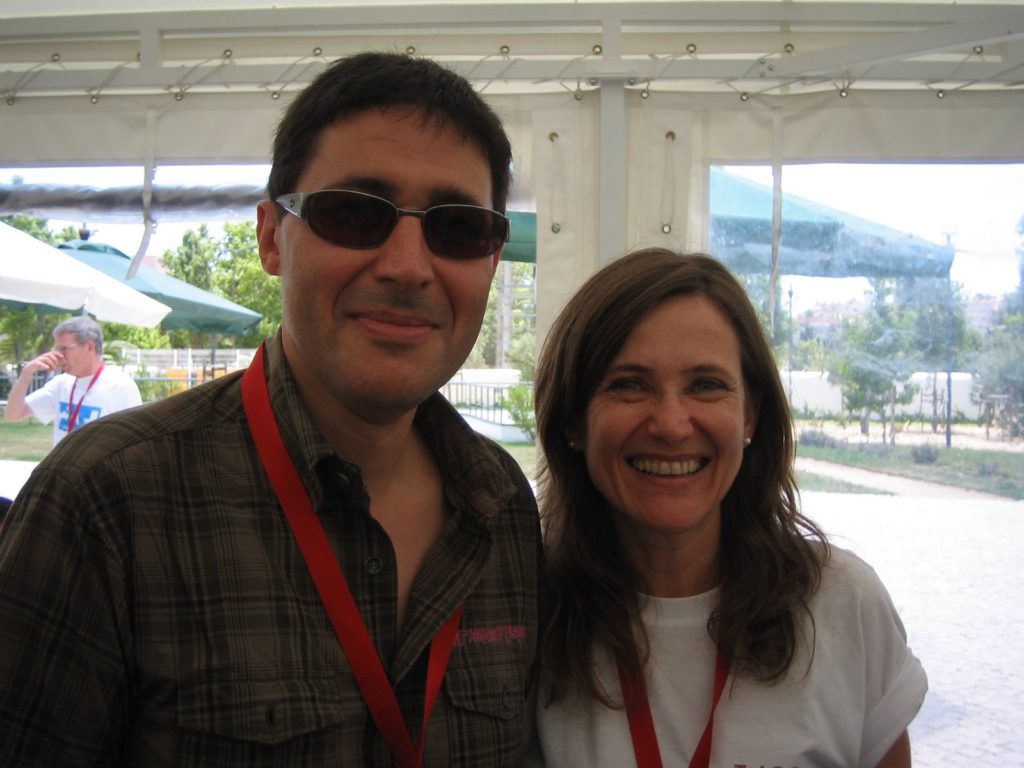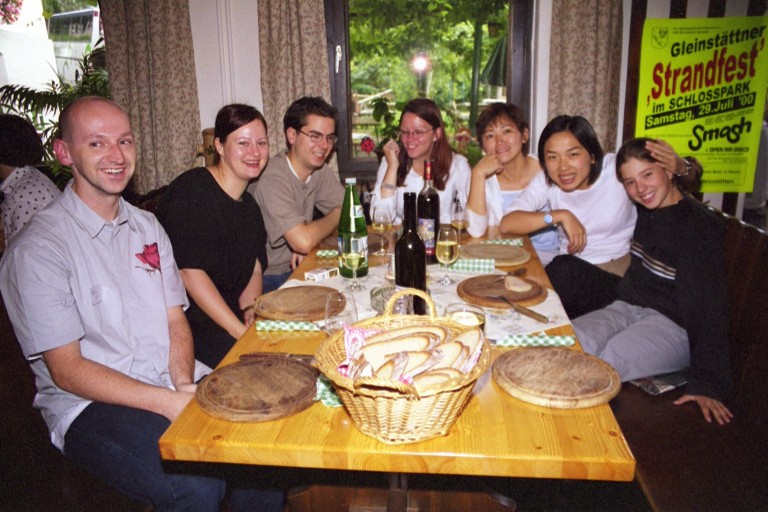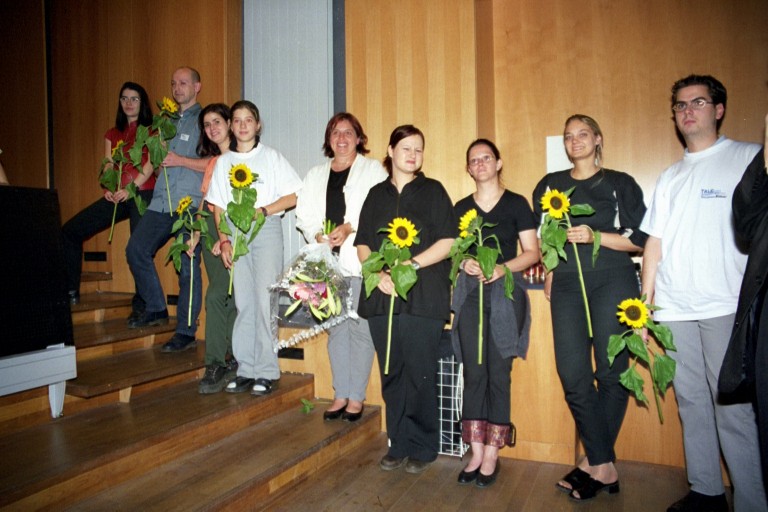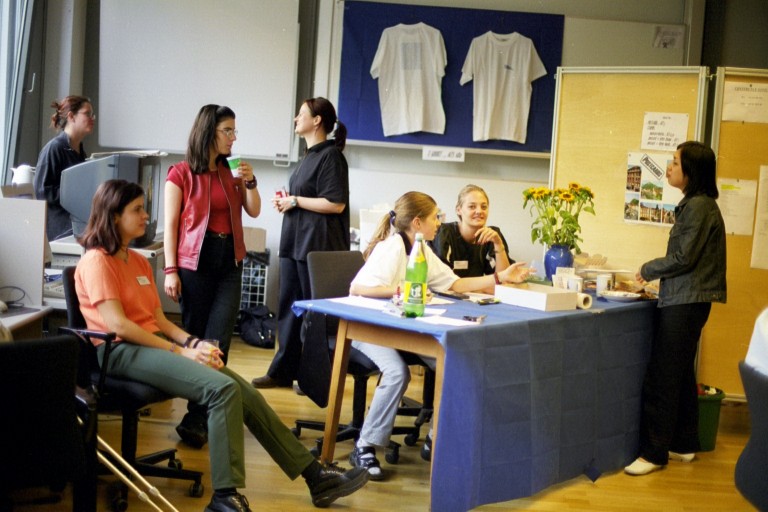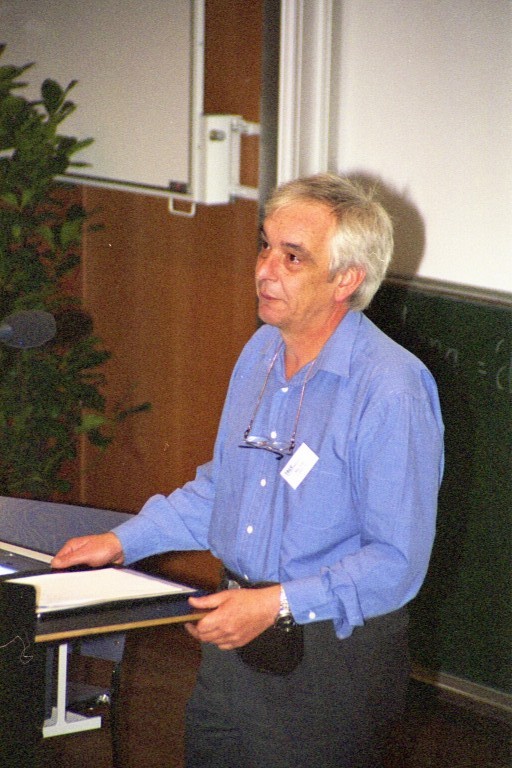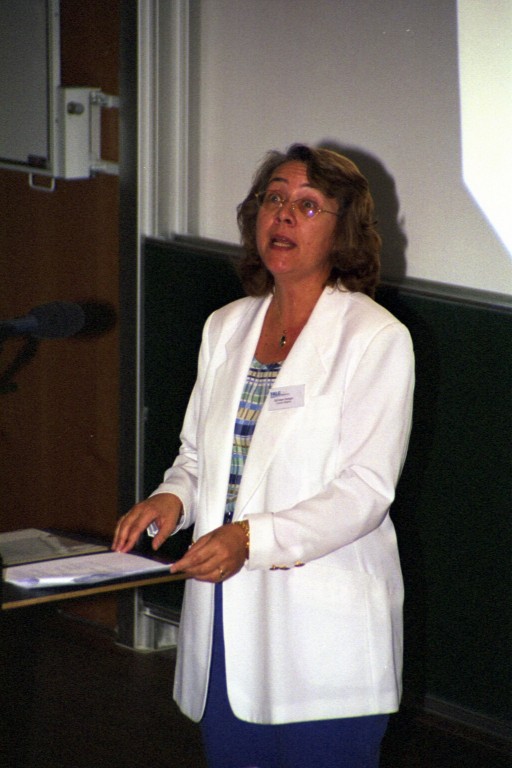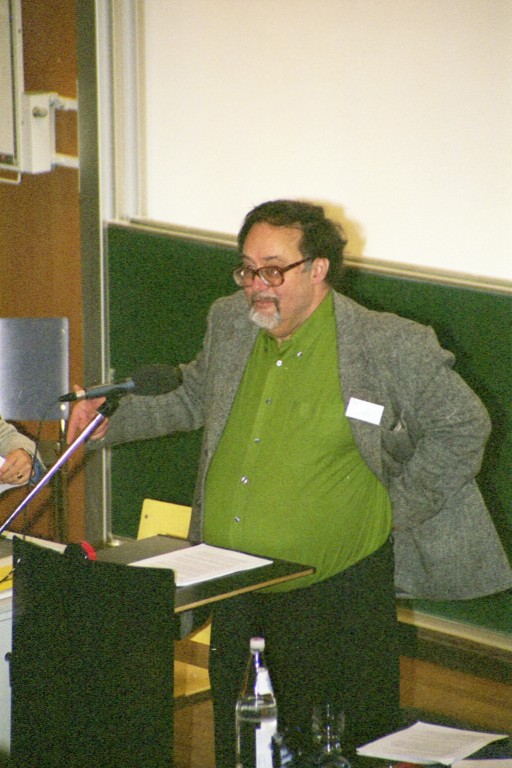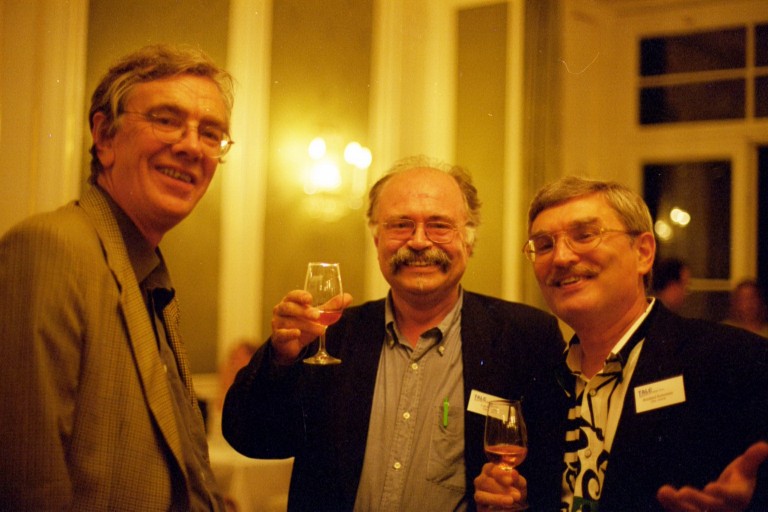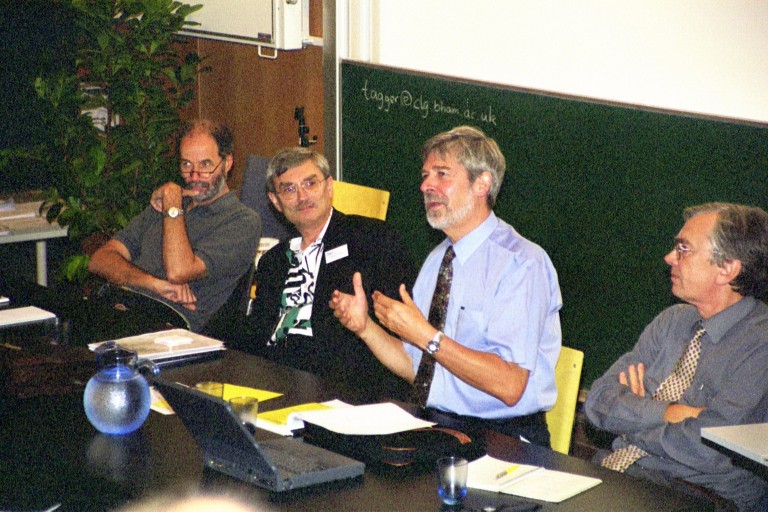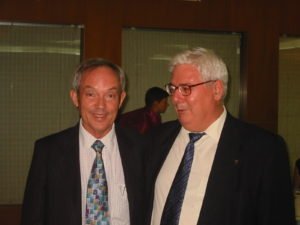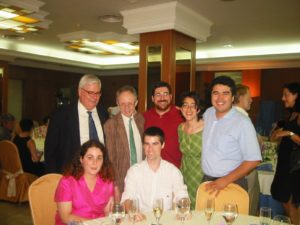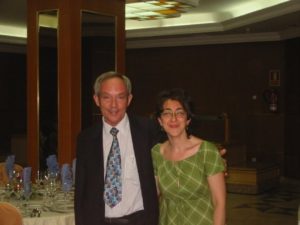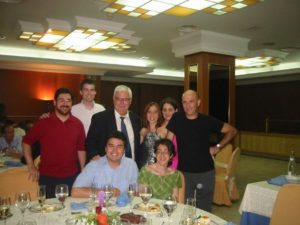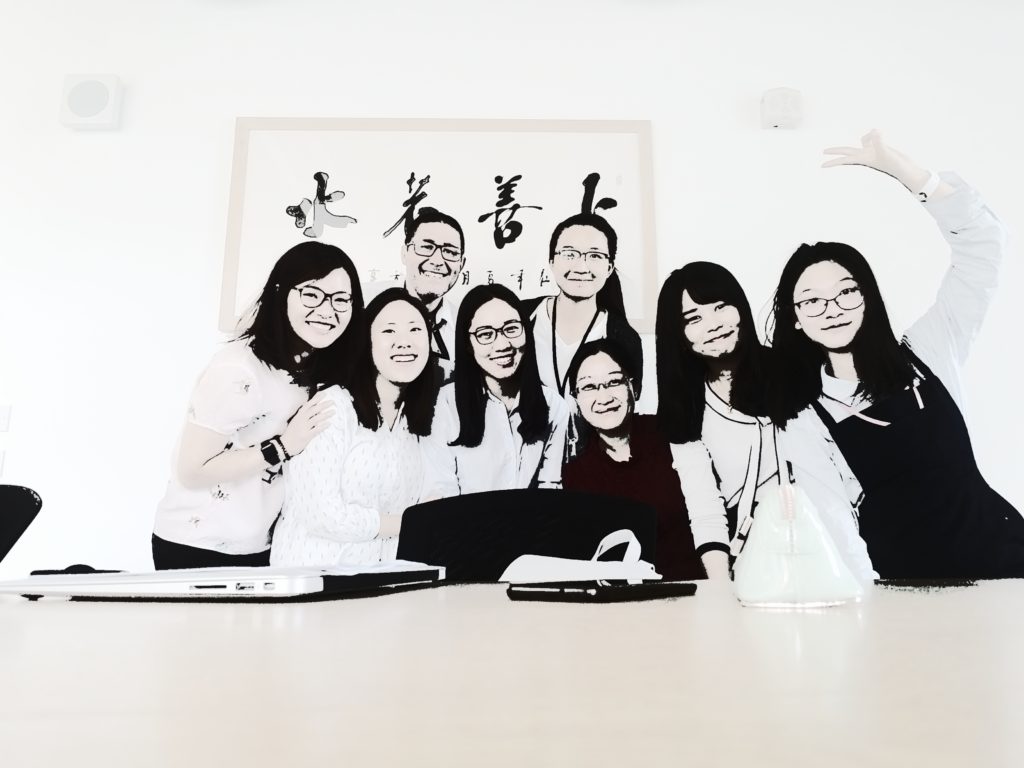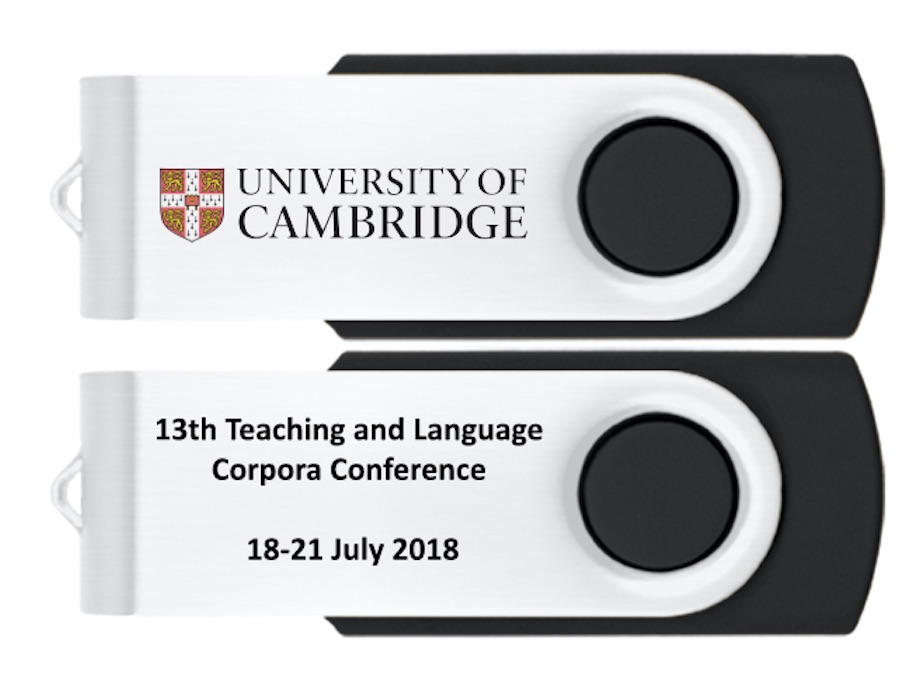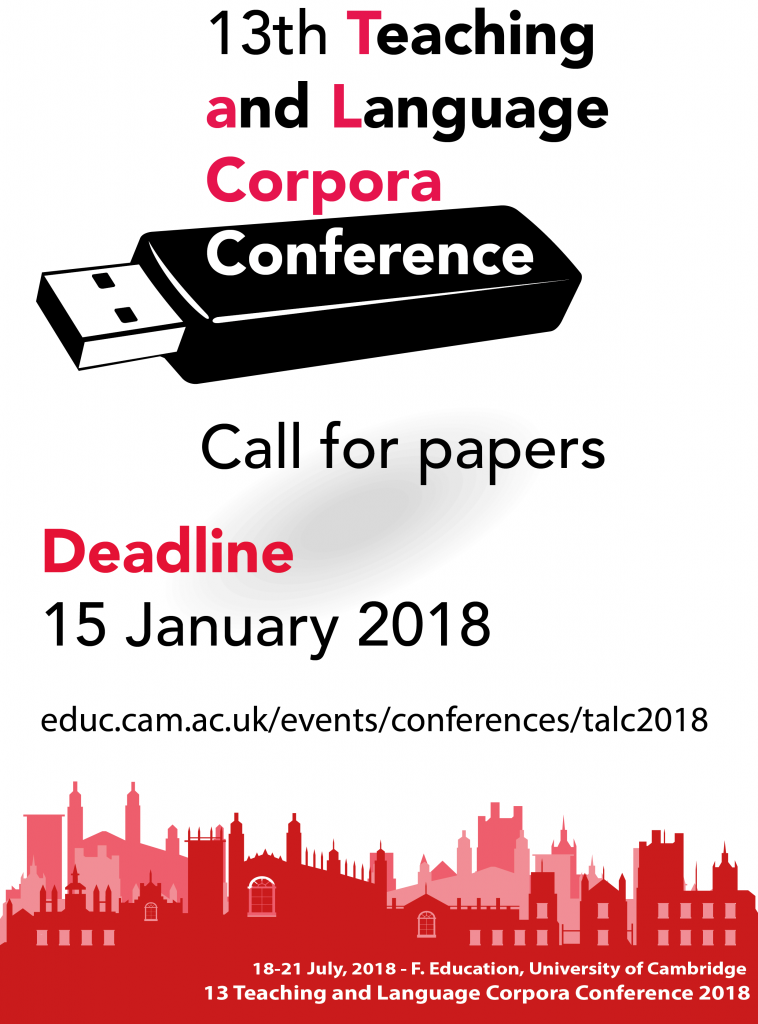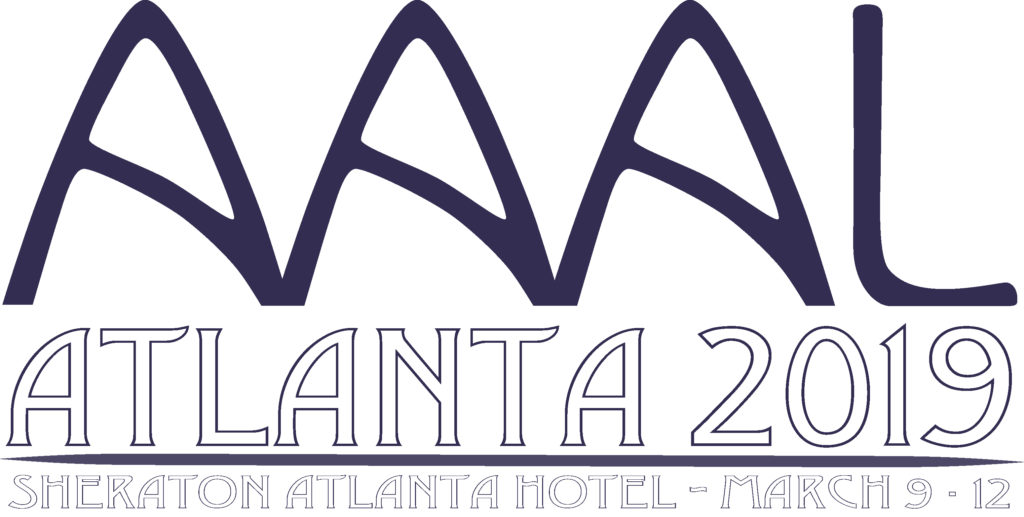
March 9-12, 2019, Atlanta, Georgia
Schedule now available www
Plenary Speakers
Nick Ellis, University of Michigan
“Usage-based Language Acquisition: Implicit and Explicit Learning and Their Interface”
Lenore Grenoble, The University of Chicago
“Language Vitality and Sustainability”
Emma Marsden, University of York
“Open Science and Applied Linguistics: Opportunities and Challenges”
Patsy M Lightbown, Concordia University and Nina Spada, University of Toronto
“In It Together: Teachers, Researchers, and Classroom Second Language Acquisition”
Iñaki Zabaleta, University of the Basque Country (UPV-EHU)
“Minority Language Media: Framing Their Reality, Development and Roles”
Invited Colloquia
“Let’s Automate: Natural Language Processing Tools and Their Applications”
Organizer: Scott Crossley, Georgia State University
“Expanding the Applied Linguistics Lens on Multiliteracies: Sociomaterial Assemblages”
Organizer: Diane Dagenais, Simon Fraser University [Wilga Rivers Language Pedagogy Colloquium]
“Assessing Lingua Franca Competence”
Organizer: Luke Harding, Lancaster University [Joint AAAL/ILTA Colloquium]
“Fandom and Language and Literacy Development”
Organizer: Shannon Sauro, Malmö University
“What Do the Data Show? Multiple Theoretical Perspectives on Learning in a Single Classroom”
Organizer: Paul Toth, Temple University
Strands
Proposals are welcome in the following topic strands:
Analysis of Discourse and Interaction (DIS)
Assessment and Evaluation (ASE)
Bilingual, Immersion, Heritage, and Minority Education (BIH)
Corpus Linguistics (COR)
Educational Linguistics (EDU)
Language Cognition and Brain Research (COG)
Language and Ideology (LID)
Language and Technology (TEC)
Language Maintenance and Revitalization (LMR)
Language Planning and Policy (LPP)
Language, Culture, Socialization and Pragmatics (LCS)
Phonology/Phonetics and Oral Communication (POC)
Reading, Writing, and Literacy (RWL)
Research Methodology (REM)
Second and Foreign Language Pedagogy (PED)
Second Language Acquisition, Language Acquisition, and Attrition (SLA)
Sociolinguistics (SOC)
Teacher Education, Beliefs, and Identities (TED)
Text Analysis (Written Discourse) (TXT)
Translation and Interpretation (TRI)
Vocabulary and Lexical Studies (VOC)
Proposals
Proposals are invited for individual papers, colloquia, posters, and roundtable discussions. The deadline for proposal submission is 4:00 p.m. on August 20, 2018 (EDT; UTC-4). If you need to renew your membership or create a guest account, you should do so at least 3 hours before the submissions deadline, to allow for changes to take place in the system. Requests relating to membership or guest accounts later than this may mean that you are unable to submit your abstract by the deadline.
INDIVIDUAL PAPERS: Papers are formal presentations on a contribution of original knowledge by one or more authors within a thirty-minute period, including 20 minutes for presentation and 10 minutes for discussion. Paper presentations will be organized into sessions of 2-3 papers grouped by strand or theme.
There will not be designated session chairs. When their presentation time comes, presenters must announce their session title, introduce themselves briefly, and start their presentation. All presenters must present their work during their scheduled time. No time changes will be allowed even if the previous presenter is absent or has finished early. Each presenter must make sure that they respect their allocated time in order to allow for the other presenters in the session to set up their equipment and start on time.
POSTERS: Poster presentations are intended for face-to-face discussions of research. Posters are especially effective for information that can be presented visually (e.g. charts, graphs, tables, diagrams). Prospective presenters are encouraged to consider posters, because of the opportunity they provide for extended discussion with other researchers. There will be several poster sessions scheduled, each approximately 1.5 hours in length. Presenters are required to be present at their posters during the coffee breaks scheduled within the session to which they have been allocated. For the rest of the period, presenters may choose to stay at their poster board at their discretion. The bulletin boards for mounting the posters are normally four feet by eight feet in size. One poster presenter will use the front and another presenter will use the back.
ROUNDTABLE DISCUSSIONS: Roundtable discussions present an opportunity for informal, in-depth discussions between presenters and attendees on a specific topic. They are particularly well suited for works-in-progress and are not meant to be formal paper presentations. The purpose is not to present on a finished project but rather to address a specific topic in such a way as to engender whole-group discussion. The advantage of roundtable sessions is that they allow for stimulating conversations and networking opportunities among participants on shared research interests. Presenters are encouraged to prepare handouts or clearly visible laptop PowerPoint slides for key information needed to support the discussion.
Roundtable discussions will be held in large rooms with several sessions taking place at the same time at different tables. Each table will be organized by strand or theme. Each presenter will be assigned to a table that seats up to twelve attendees. Presenters will be allocated 30 minutes: 10-15 minutes to speak on their topic and 15-20 minutes for group discussion.There will be a time-keeper assigned to reach roundtable session.
COLLOQUIA: Colloquia allow for extended discussion on a particular topic, achieved through the organization of individual presentations that are clearly linked to the colloquium theme and to each other. A small number of colloquia are invited by the conference chair, but others may be proposed by AAAL members. Proposals for colloquia can be for either one-hour or two-hour block of time. (Please note the change in colloquium length from previous AAAL conferences).
Two-hour colloquia: The number of presenters and length of each presentation is left up to discretion of the colloquium organizer, as is the decision to include one or more discussants. Because the purpose of this format is to foster dialogue among attendees, generous time allowance should be made throughout the colloquium for extended audience discussion of the papers presented.
One-hour colloquia: This is a new format for 2019, designed to provide better coherence among the shorter 10 minute paper sessions offered at AAAL for the past two years. Conferences in many other academic fields limit presentations of full papers to a maximum of ten minutes, in paper sessions that are thematically linked. This has some advantages: it encourages conciseness and focus and allows more time for discussion than the longer paper presentations. Sessions in this format will consist of three individual ten-minute papers within a one-hour time slot. Each paper is allocated up to two minutes for clarification questions, followed by 20-25 minutes of discussion after all three papers have been presented. The thematic linking of the three papers in the session was previously made by the AAAL conference organizing committee. This year, one or more of the authors of the three papers will serve as the colloquium organizer(s). Please note that the one-hour colloquia should not include an additional presenter in a “discussant” role; the discussion is managed by the authors of the three papers.
Colloquium organizers serve as the liaisons between participants in the colloquium and the AAAL conference program committee, and are therefore responsible for communication among the presenters and discussants
AV EQUIPMENT: Please note that AV equipment will not be available for Posters or Roundtable Discussions. Presenters may bring handouts or use their laptops if they wish. However, be advised that the computers will have to operate on battery as there will be no outlets.
